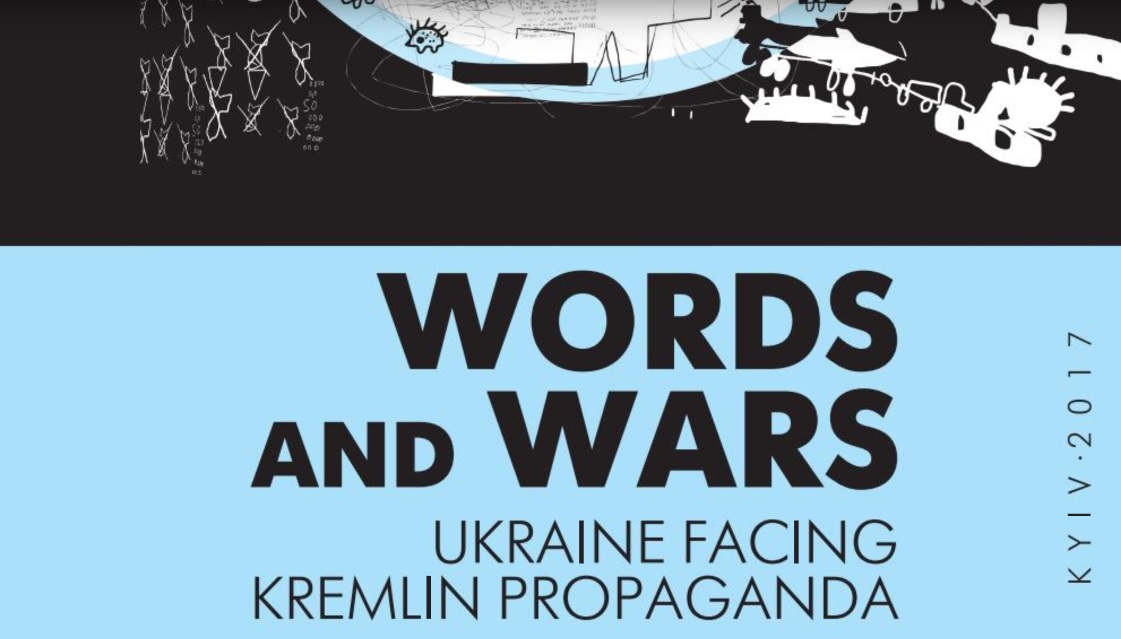This analytical publication was compiled by NGO Internews Ukraine with the support of the European Union and the International Renaissance Foundation within the framework of the Civic Synergy Project and under the auspices of the Ukrainian National Platform of the Eastern Partnership Civil Society Forum. Its content is the exclusive responsibility of the authors and does not necessarily reflect the views of the European Union and the International Renaissance Foundation.
The book is an overview of the Ukrainian experience of dealing with Russian propaganda and information warfare. It is the work of a group of Ukrainian authors based on their own research and on the interviews they conducted with key Ukrainian civil society and media experts in information analysis, studying Russian propaganda, debunking fake news and information security. It contains analysis of Russian propaganda/disinformation actions perpetrated in Ukraine, including their key messages, approaches, communication channels, etc. It also contains policy recommendations for the international community and the Ukrainian authorities.
You can download the book for free here.
Counteracting Russian propaganda: lessons and ideas from Ukraine
Over the past years and even decades Ukraine has been at the forefront of counteracting Russian information warfare. The country experienced the impact of Russian propaganda, disinformation and hybrid war earlier than many other European or American societies. This makes the Ukrainian experience so unique and so informative for those who have been facing the challenge of Russian propaganda only recently.
Internews Ukraine published a book Words and Wars: Ukraine Facing Russian Propaganda. The book is a study of the Ukrainian experience of dealing with Russian information warfare. It is written by a group of Ukrainian authors based on their own research and on interviews with key Ukrainian civil society and media experts in information analysis, researching Russian propaganda, debunking fake news and information security.
The book contains the following key messages :
- Russian propaganda is not an invention of the recent past. It has deep roots, which can be traced back to at least Soviet times. "Post-truth" strategies are not the invention of the Putin era.
- However, today's Russian propaganda not only resembles Soviet models but is also different from them. Its goal is not to provide its own narrative but also to weaken existing democratic narratives of Western societies. Being unable to suggest its own new grand narrative (post-democratic or post-capitalist), it tries to show that Western narratives are unsustainable.
- The problem of Russian propaganda is wider than that of "fake news". Studying fakes is an important part of this book too; however, its argument is that Russian propaganda goes further than fake news, and that it uses a specific discourse, which has a clear semi-militarist tonality and is aimed at winning a war.
The book, however, not only describes the problem but also suggests policy options of how to deal with it. It provides recommendations both to Ukraine and the international community. With regard to international community, the book recommends, in particular, to:
- Acknowledge that the problem of propaganda and disinformation is a threat to security, both national and civilian.
- Open a debate among stakeholders on ways to respond to security threats without restricting genuine freedom of speech.
- Develop maps of dissemination of propaganda messages in each particular state.
- Develop anti-ratings of "media" that disseminate fakes most actively.
- Develop thorough fact-based and fact-checking journalism projects with international networks
- Develop alternative forms of response to propaganda, which include irony and infotainment but, at the same time, a solid fact basis.
- Develop civic initiatives on counteracting propaganda
- Introduce training sessions on media literacy in schools and universities
- Develop due diligence practices and financial/fiscal monitoring of information resources which were caught spreading propaganda.
- Better integrate Ukrainian and international reporting communities, through forums, meetings, informal networks.
- Monitor social networks and sanction accounts propagating hate speech or spreading fakes.
- Defend the values of democracy by showing where democracy works, and how society would look like if democracy fails (or looks like where democracy does fail)
- Study Russian soft power initiatives, including NGOs, think tanks, communities, religious organizations, which can prepare the ground for "active measures". Study experiences in Donbas and Crimea in 2000-2013, prior to annexation and war.
- Compare the messages of Russian propaganda with the reality on the ground, including in the annexed/occupied territories of Crimea, Donbas, Abkhazia, South Ossetia, etc.
- Have more flexible tools for counteracting the flexibility of Russian propaganda.
- Remember that Russia often uses opportunities provided by democratic states in its fight against democracy; develop stricter legislative provisions which would make it harder, for example, to register propaganda channels in Europe or US as media.
- Recognize that workers of Russian propaganda outlets are not journalists, therefore avoid applying principles and practices to them that are applied to journalists (accreditation, etc.).
- Monitor support from Russia for specific political forces, especially during election campaigns (Front National, AfD, etc.).
- Introduce legal responsibility for sharing fake information.
- Introduce personal sanctions against key authors of Russian propaganda (many of them have assets in the West).
- Create a network of international experts dealing with propaganda.

